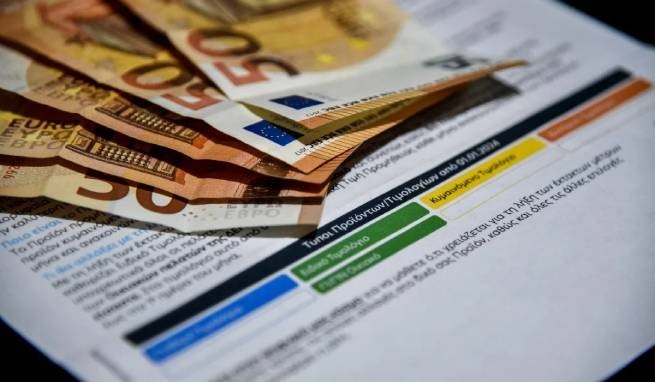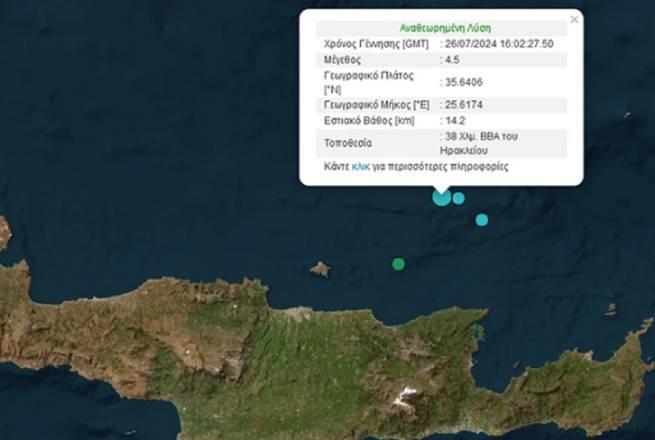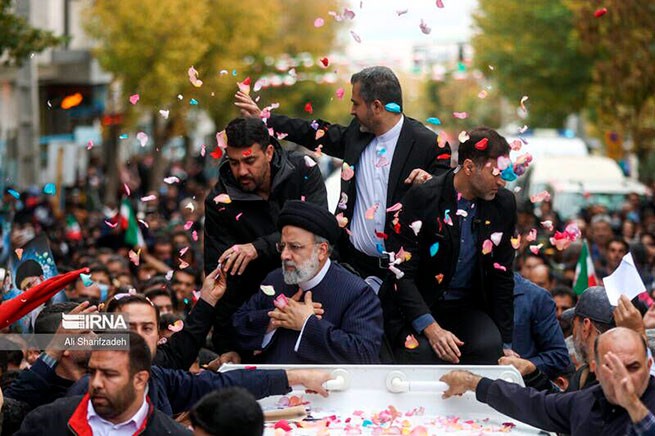At the moment, the markets are calm after the unexpected death of Iranian President Ebrahim Raisi, although there was a slight commotion in the oil market, which was “absorbed” after some time.
For now, global oil benchmark Brent is trading slightly higher but still below $85 a barrel as there is no sign the incident will lead to supply disruptions or policy changes.
This assessment is supported by analysts at Eurasia Group, who write that Raisi's death will not lead to major disruptions to Iran's internal stability as security forces, the army and the Islamic Revolutionary Guard Corps (IRGC) remain under the control of Supreme Leader Ayatollah Ali Khamenei.
Ali Ahmadi of the Geneva Center for Security Policy, speaking to CNBC, also sees limited impact, while Ben Taleblu, a senior fellow at the Washington-based Foundation for Defense of Democracies, believes Raisi has many enemies within Iran. “He represents a new version of the Iranian revolutionary elite – much less capable, but much more militant,” he said, explaining that from now on the balance will not change.
Complex power structure in Iran
The complex, multi-layered and opaque power structure of the Iranian regime can be difficult to understand for the uninitiated, let alone for those outside it, the Financial Times reported in April, prophetically explaining why the loss of Iranian figures other than Ayatollah Ali Khamenei is of great importance.
Although the country of some 90 million people appears to be firmly under the control of a single cleric, the Islamic Republic's ruling elite has actually entered a period of significant change, the FT said. As factions prepare to fight over a successor to aging Supreme Leader Ayatollah Ali Khamenei, the regime's future is increasingly determined by the military and its supporters.
The developments have become a critical factor for security in the Middle East as Iran's decades-long hostility toward Israel has reached dangerous levels in recent weeks. As the crisis unfolds, the region faces a critical question: who makes decisions for Iran?
Does Khamenei have final decision-making authority?
Khamenei is arguably the main decision maker on all major domestic and foreign policy issues. The 85-year-old leader has belligerently rejected what he perceives as a “tyrannical West”, particularly the US and Israel. He says the Islamic world must be self-reliant in its fight for justice, defending Iran's foreign and military policies as well as its controversial nuclear program, which he says is purely peaceful, citing religious texts.
But Khamenei is also a pragmatist, heeding the admonitions of his predecessor and mentor Ayatollah Ruhollah Khomeini that regime survival trumps the importance of even basic Islamic principles.
Khamenei takes calculated risks when opponents cross his red lines. After the US killed Qassem Soleimani, his beloved Revolutionary Guard commander, in 2020, he authorized a missile attack on a US base in Iraq that wounded more than 100 soldiers but killed none.
His latest adventure – a departure from the standard approach of “strategic patience” – follows an alleged Israeli attack on the Iranian consulate in Damascus on April 1. Believing it was an attack on Iranian territory, Khamenei authorized Iran's first direct strike against Israel in retaliation, launching a barrage of more than 300 missiles and drones.
However, even this attack was seen by Tehran as aimed at limiting escalation and avoiding heavy losses. Iranian diplomats sent messages warning of retaliation while emphasizing the goal of deterrence. Following the Israeli counterattack, Iran's public reaction was silent, signaling that the regime wanted to avoid a full-scale conflict.
Despite his age, Khamenei remains active, giving long speeches and appearing in public sometimes without his usual cane to demonstrate his physical health. A diligent student of world history, philosophy and literature, Khamenei aims to make Iran, which fought Saddam Hussein's Iraq in the 1980s, a leading regional power.
He keeps hardliners in important positions and welcomed the late President Ebrahim Raisi, who was elected in 2021 with record low turnout in what was seen as a reflection of public discontent. Unlike previous heads of government, Raisi did not challenge the supreme leader and strictly followed his instructions, perhaps to better position himself as a successor.
Is Khamenei under the rule of the Revolutionary Guards?
Khamenei controls the Islamic Revolutionary Guard Corps and has helped transform it into Iran's most formidable institution. The commanders of the Guard are loyal to him as the head of the armed forces and to his ideology.
But he listens to their advice, including on non-military issues. The Guard serves as Khamenei's main mechanism for exercising power in Iran and the Middle East. Their influence extends to foreign policy, economics, cultural and social issues, and domestic policy, including monitoring and ruthlessly suppressing political dissent. They are essentially a powerful shadow government.
What role do other Iranian clerics play in decision making?
Iranian clerics provide religious legitimacy to the country's rulers, including the supreme leader, who is required to be a Shiite Muslim cleric. However, most of them have little impact on everyday decisions. The Assembly of Experts, made up of 88 clerics, is responsible for appointing the next leader after Khamenei's death. She is also expected to monitor his activities, although she never exercised any supervision.
The clerics, mainly concentrated in the holy cities of Qom and Mashhad, prioritize the study of religion and focus on cultural and social issues such as the role of women, the observance of the hijab, restrictions on music, and the ban on alcohol.
The popularity of clergy, whose number has grown to hundreds of thousands studying and working in government-funded institutions, has waned in recent years. Some of the most powerful members of the clergy control business trusts and are often accused by the public of financial misconduct.
Historically, the clergy maintained their independence from government agencies through close ties to wealthy bazaar merchants. Both groups played an important role in Khamenei gaining power in the 1979 revolution.
How big is the impact of business?
Iran's economy is largely state-owned and is based on revenues from the sale of crude oil. The private sector is deliberately sidelined to prevent businesses from exerting too much influence or supporting political change.
The regime created its own networks of loyalists and quasi-state enterprises to manage trade and industry, especially in important sectors such as oil, gas, petrochemicals, steel and automobiles.
Private companies that exist in sectors such as food production tend to be small. Although some technology companies have emerged, Iranians believe they are tightly controlled to avoid becoming too large or powerful.
Corruption is growing in this opaque economy. Although Iran's leaders blame individuals rather than systemic failings and periodically hold prominent figures accountable, many citizens remain unconvinced.






More Stories
Digital Currencies: Global Control or New Opportunities? What's Behind the Introduction of Digital Money
BRICS + ACEAN: A New Era of World Currencies
How much does a square meter of housing cost in the Cyclades